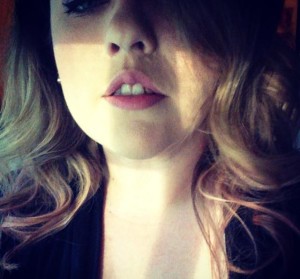 Location: Denver, Colorado
Location: Denver, Colorado
Education: I have one. It pays the bills – barely.
The Writer
How long have you been writing?
I started plagiarizing in 3rd grade. When a substitute teacher complimented me on my creativity, I had a flush of guilt and thought “maybe I should come up with my own story for once.” I didn’t really have the guts to follow through with that thought until I was in college, but somewhere in the back of my head I think I always intended to be a writer.
Do you see writing as a career?
I see writing as a lifestyle. Or maybe an animal, lurking around inside me. It’s something that needs constant attention and food and love, or else it will go lifeless and dormant. I don’t think the animal ever goes away, but sometimes it hibernates if I don’t properly nourish it.
What do you consider to be your greatest accomplishment as a writer?
My greatest accomplishment is the fact that I’m still writing.
The Work
Tell us about your work in Crack the Spine.
My story is called “The Case of the Disappearing Water.” It’s about a man who freezes his wives for some altruistic purpose (as he sees it) and the haunting (literally?) aftermath of that act.
What inspired “The Case of the Disappearing Water?”
On a thematic level, I think the inspiration behind this piece was a desire to explore how ordinary things, like the sound of ice cubes in a glass, can remind us of someone we have loved and lost.
Anything else you’d like to share about your work in Crack the Spine?
This piece is part of a series called “Case Files” that all begin with the title “The Case of _____.” The title is already written, and serves as a jumping-off point for me, though sometimes I find myself deviating from the title entirely. Like the other pieces I’ve written in this series, “The Case of the Disappearing Water” is a blend of the surreal and the concrete, as I’m attracted to the contrast between the two.
Tell us about another project you have published or are currently working on.
My short story collection, Partial Stranger, is still languishing on a shelf. I think it will be published one day, but who can say when?
The Methods
How often do you write?
As little or as much as possible.
Where do you write?
I have to be able to write no matter where I am, so I carry pens around. Or, in a pinch, I’ll write on my phone. I keep it next to me in bed in case I wake up in the night and want to write something down.
What are your thoughts on writing at a computer vs. writing longhand?
I typically start a story using longhand, because that’s where I feel free to experiment and mess around. Longhand is lively and improvisational. As soon as I start typing, things get serious. I get anxious about making things fit together, making them build in the right direction.
What is your usual starting point for a piece?
I almost always start a story with characters. Plot isn’t very interesting to me—or, rather, plot IS people. People and their wonderful delusions and quirks and idiocies and obsessions. Sometimes I share my characters’ quirks and idiocies, and sometimes I don’t. I’ve certainly never frozen any of my wives.
How do you react to editorial rejections of your work?
My initial response is to feel sad and sulky, but after a moment I feel a certain kind of peace. Is there anything more universal than rejection? We have all been there and we will all be there again.
The Madness
If you could have dinner with one fictional character, who would it be and why?
Bartleby, from “Bartleby the Scrivener.” Only if he prefers to, though.
What is the greatest occupational hazard for a writer?
People you know—your friends and your family—will think you are writing about them. You will tell them you’re not, but you will be lying. You are writing about them even if you don’t know it.
What is your favorite word?
Today my favorite word ‘torsion.’ It’s a discomfiting word, isn’t it?
Additional Reading on Leslee

I very much enjoyed Rob Kerbeck’s story “Assbreaker”
The characters were tangible and the humor dark and ironic.
best,
Daniel